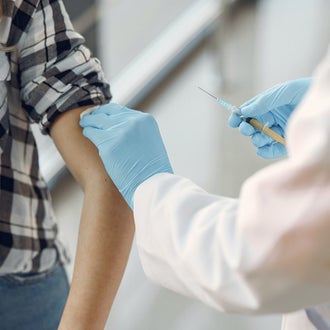I watched a video online discussing the harmful effects of the cervical cancer vaccine, Gardasil. Is any of it true?"
Current evidence indicates the two vaccines developed to protect against human papillomavirus (HPV), Gardasil and Cervarix, are effective and safe to use. Since early 2018, young Australians have been given free access to the new HPV vaccine, Gardasil ® 9 which protects against more types of HPV infection. Gardasil ®9 has been approved for use in Australia by the Therapeutic Goods Administration, and overseas by the US Food and Drug Administration and the European Medicines Agency. Safety is continually assessed and monitored, and information regularly reviewed by expert advisory groups.
There are over 800 new cases of cervical cancer and around 250 deaths every year in Australia. Cervical cancer is caused by HPV, and Gardasil ® 9 has been shown to prevent infection with the two strains of HPV associated with 70% of cervical cancers. It also protects against the five next most common HPV types associated with cervical cancer and the two non-cancer causing HPV types that cause genital warts. Although no vaccine is completely without side effects, the great majority of events have been mild and common, for example temporary soreness, swelling and redness at the site of the injection. Many of the reported events (such as headache, or feeling dizzy or unwell) may be equally common in people of the same age who have not received the vaccine.
Over 270 million doses of the vaccines have been administered worldwide (as of May 2017). When dealing with such large numbers, some serious events can be expected within days or hours of vaccination by chance alone and unrelated to vaccination. There have been some reports of neurological symptoms similar to those present with multiple sclerosis, however these reports have been investigated by an independent panel of medical experts in Australia, which found no proof of a link to Gardasil. The number of these events is no more than would be expected by chance.
Based on doses distributed in Australia, the current estimated risk of severe allergic reaction, anaphylaxis, is 2.6 in a million risk, which is why practitioners giving the vaccine have the necessary medical equipment and drugs on site. Contrary to some claims, no deaths have been linked to Gardasil in Australia, the US or Europe. Recently, the World Health Organization reviewed the global information and concluded that “The Committee continues to be reassured by the safety profile of the available products.”
The HPV vaccine is not a replacement for regular Cervical Screening Tests. Women between the ages of 25 and 74 are still advised to visit their GP for a free Cervical Screening Test two years after your last Pap test, and subsequently every five years – whether or not they have been vaccinated.

